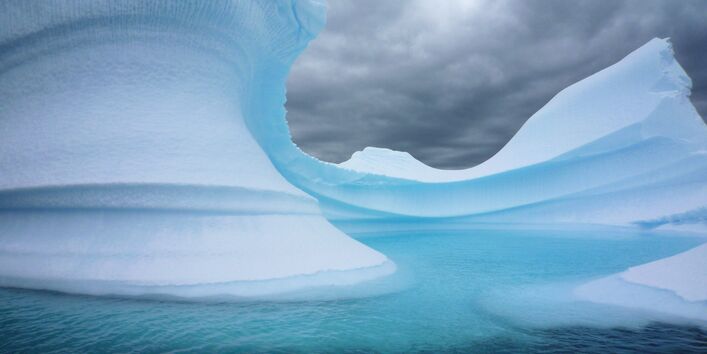Anniversary celebration of the Protocol of Environmental Protection to the Antarctic Treaty
Germany and 25 other Parties to the Antarctic Treaty signed the Protocol of Environmental Protection to the Antarctic Treaty on 4 October 1991, thereby laying down the toughest and most comprehensive environmental protection regulations ever agreed for any region on Earth. 37 states have signed the Protocol to date.
The agreement prohibits the extraction of raw materials for commercial purposes and declares Antarctica a natural reserve devoted to peace and science. The Protocol regulates the conservation of Antarctic fauna and flora, waste disposal and management, the prevention of marine pollution and the establishment of specially protected areas. It provides for the protection of the Antarctic environment within the Treaty System.
The hunt for mineral resources drew the attention of mining companies to Antarctica starting in the 1970s. The then signatories to the Treaty started negotiations that lasted well into the 1980s on an agreement to strictly regulate the mining of mineral resources. However, when their agreement failed the way had been paved for the Protocol of Environmental Protection.
At their last conference in June 2016 and on the anniversary of the signature of the Protocol, the voting Parties to the Antarctic Treaty reaffirmed a resolution to prohibit commercial mining of raw materials in Antarctica. It sends an important signal that even though the Protocol may cease to be in effect 50 years after its entry into force in 1998, any voting Party to the Antarctic Treaty may request renegotiations as of 2048.
Germany transposed the regulations of the Protocol of Environmental Protection into national law through the Act Implementing the Protocol on Environmental Protection (AIEP). In parallel to the Protocol of Environmental Protection, the German legislation is aimed at the protection of the Antarctic environment and its dependent ecosystems.
The Act provides that all activities in Antarctica which are organised by Germany or originate on Germany territory are subject to authorisation which must be obtained from the German Environment Agency – regardless of whether the purpose is research or tourism.
The Antarctic Treaty System is one of the most successful international agreements and consists of the Antarctic Treaty and other international agreements based on the Treaty. For 50 years it has secured peace in a region of the world nearly one and a half times the size of Europe up to the Urals, despite an as yet unresolved, territorial conflict which has been "put on ice". It enables close cooperation among states with widely divergent interests in research and environmental protection.
